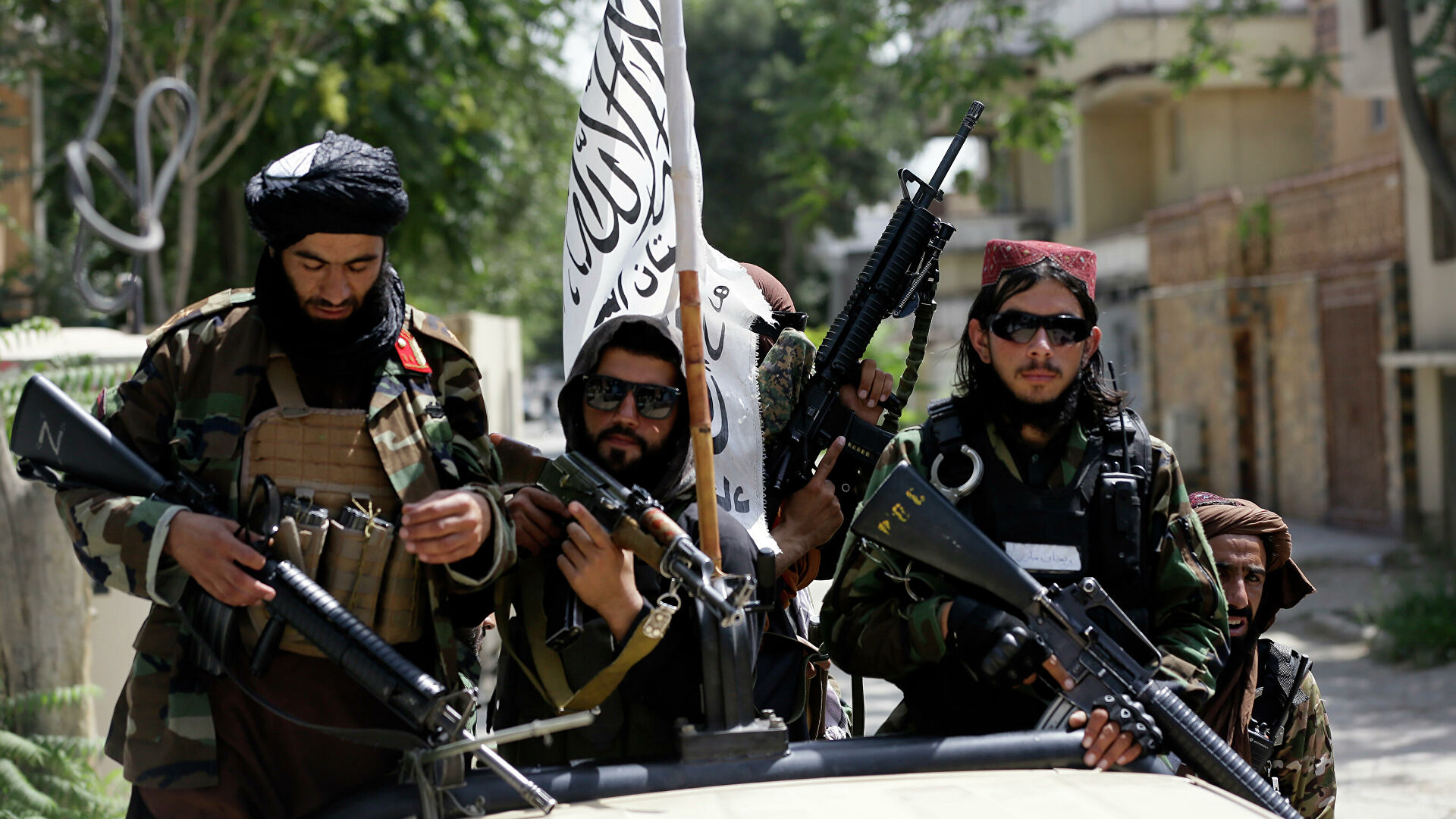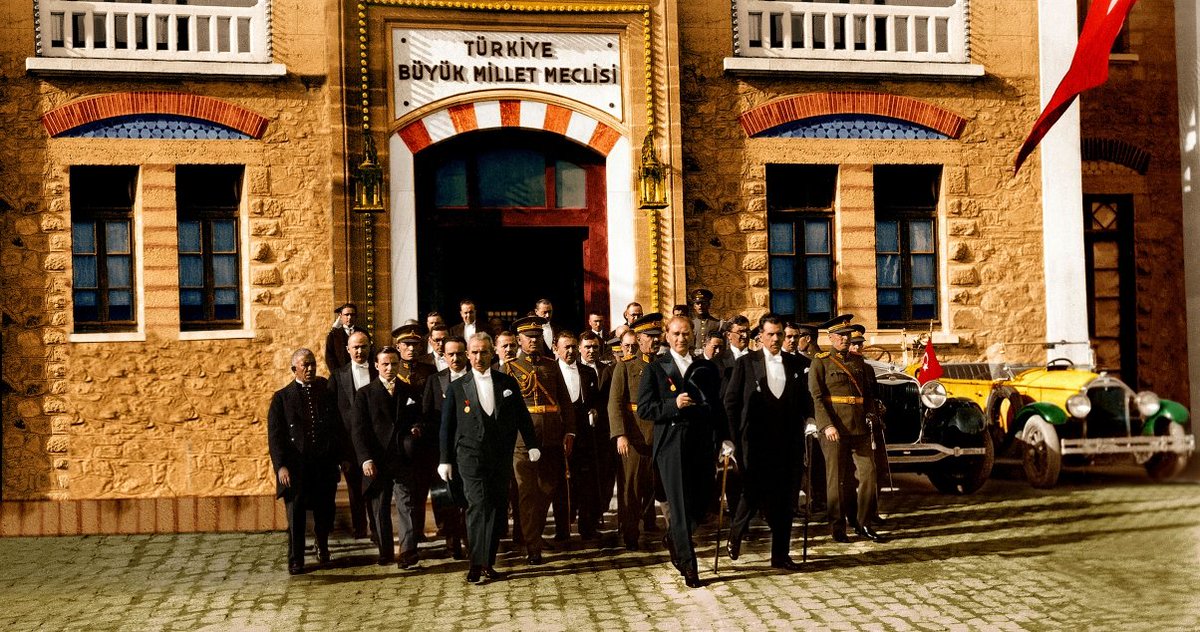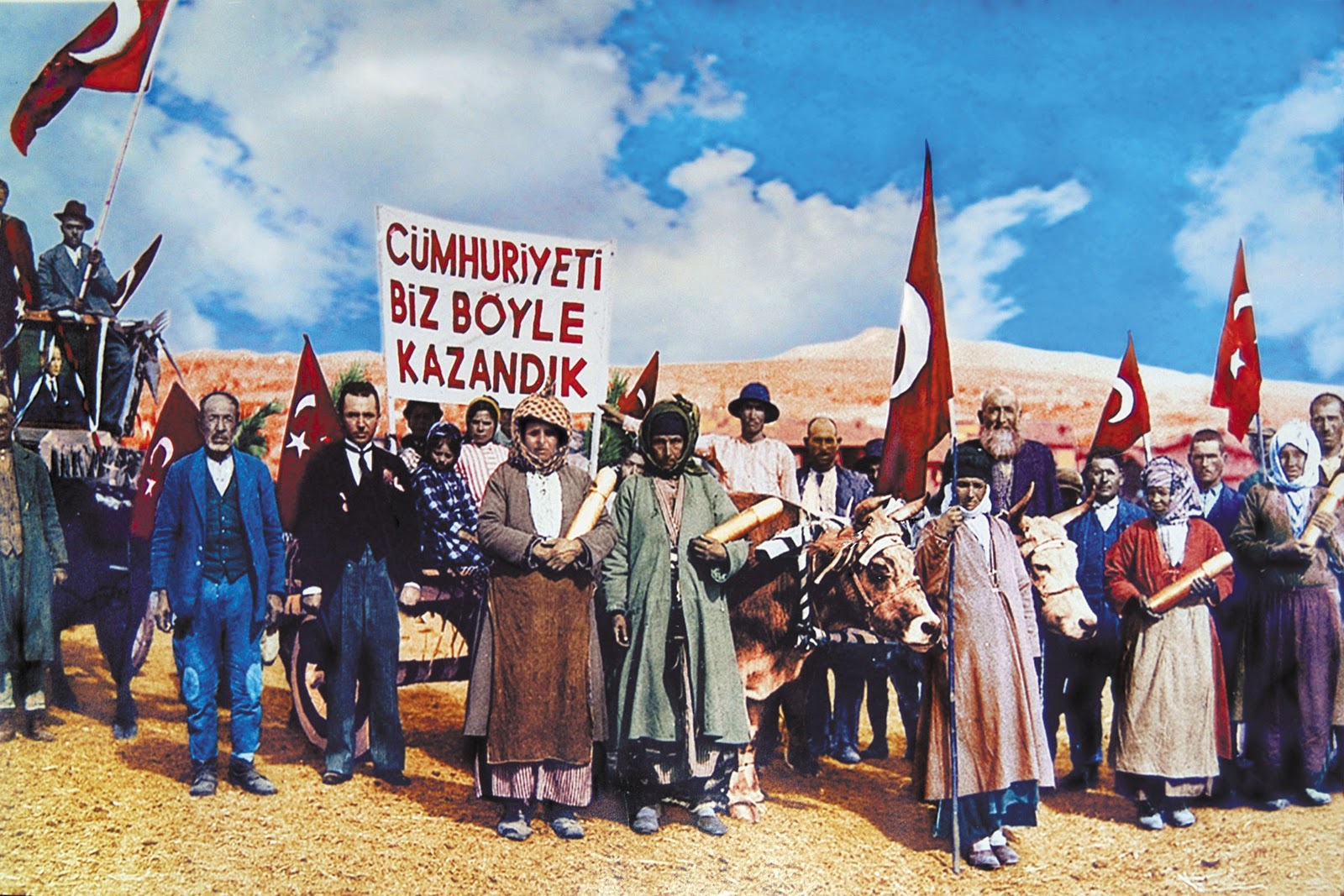Abstract
Neoliberalism seeks economic liberalization and globalization. For these purposes, countries integrate into global markets. But moving directly from imported substitution and welfare policies to neoliberal policies, such as Turkey, can have consequences such as poverty and income inequality. The wrong social policies created to prevent these negative consequences could put the country in a stalemate. In this article, between 1980 and 2000, the impoverishment of neoliberalized Turkey and a number of social policies developed as a result of this impoverishment will be mentioned.
Keywords: globalization, income inequality, neoliberalism, poverty, social policies.
INTRODUCTION
There was a bad economic legacy from the Ottoman period to the Republic of Turkey. There was an economic structure based on weak agricultural policies, industrial and commercial activities were not developed. Adding to it heavy foreign debts and war conditions, the economy faltered. Within the framework of the economic policies adopted in the Ataturk Period of 1923-38, Izmir Economic Congress was convened and various social policies were aimed under the leadership of the state, and it was aimed to establish factories that provide employment even in the most remote corners of the country. Despite the Great Depression of 1923-1950 and World War II, these goals were successful and all-out economic, social and cultural development was achieved. On the other hand, within the framework of the Izmir Economic Congress held between 1923-29, a liberal economic model supporting domestic industry was envisaged. For this purpose, the Ashar Tax was abolished in 1926 and the Stimulation of Industry Law was enacted in 1927. However, these liberal policies were suspended by the 1929 Economic Crisis and imported substitimate and statist economic policies were introduced. Until the 1950s, a state-sponsored development emerged (Kocturk &Gölalan, 2010). The Democratic Party came to power in the multiparty system in 1950 and was ousted in the 1960 Coup. Among the reasons for this, besides statist policies, it is seen that the share of inflationary economic policies is large. Rapidly rising prices have worsened the level of living of fixed-income people every year. In 1963, a five-year development plan was introduced regularly for the first time to stop this process and to break the effects of World War II. The establishment of the State Planning Organization was ensured and comprehensive planning was carried out in order to ensure the rapid development and social justice of the state. By the 1970s, a more difficult process awaited Turkey. Because Turkey heavily paid for the impact of the 1973 Oil Crisis in 1977 and was embargoed by western countries due to the 1974 Cyprus Peace Operation. As a result of all this, in 1980, under the leadership of Turgut Özal, the Decisions of January 24th were revealed (Dagdemir& Küçükkalay, 1999; Salep, 2017). The Decisions of January 24th are the most important gateway to Turkey’s economic globalization. It is the first step in the transition from imported substitute economic policies to export-based policies. It is a revolution that opens the Turkish market to the global market. This need for revolution arose when the liberal economy peaked in the 1970s. Within the scope of the 4th Development Plan, it was aimed to move to the market economy in Turkey. Increased ties with the Organisation for Economic Co-operation and Development (OECD) and the International Monetary Fund (IMF), and to be able to articulate into the global world were the main reasons for that for Turkey. According to the plan, policies would be created to shift the economy of Turkey, which is based on the agricultural sector, to the industrial sector, subsidies in agriculture would be reduced and liberalization would begin, all financial and physical markets, especially foreign exchange markets, would be released, strict monetary policies would be implemented and interest rates would be increased (Ozturk & Nas & İçöz, 2008). As a result of these, the changing and transforming economic structure in Turkey has caused changes in public life, led to the emergence of income injustices and entered the field of social policies by creating poverty. In this context, the question to be explained in the article is “What kind of process did the poverty resulting from neoliberal policies go through between 1980 and 2000 and did the policies applied to solve this poverty problem have been effective?” This question will be explained in the form of two main headings and two subheadings. The first main topic, ‘Poverty And Measurıng’, will describe what poverty is, how poverty is measured and determined, and its place in social policy. The second main title, ‘Neoliberal Poverty in Turkey’, will describe poverty in Turkey in general and will be detailed within the framework of the social policies implemented in two sub-headings: ‘1980-1990’ and ‘1990-2000’.
1. POVERTY AND MEASURING
One of the oldest problems in the history of the world, poverty, according to the dictionary definition, is a concept that includes people who do not have enough money or do not have enough tools to sustain their lives. However, poverty cannot be fully defined, even if poverty is “not sufficient to meet the minimum physical needs of food, clothing, etc., which are necessary for the continuation of biological existence” according to the definition first made by S. Raventree in 1901. Because the concept of poverty is a concept that includes minimum living standards, preferences and expectations, these variables vary according to the political order, economic structure and cultural codes such as tradition, customs and religion. By another definition, poverty; in addition to financial resources such as nutrition, clothing housing and education, social and political variables and economic indicators are also prioritized. In this context, human nature has two kinds of requirements. These are the ones that are going to biological requirements such as hunger, thirst and social requirements such as freedom, love and respect. Meeting these requirements will reveal the concept of deprivation and poverty. As a result of these discussions, it was seen that poverty is more based on material needs. In this context, poverty is examined in 3 respects. In absolute poverty; it is made on the average calories that the population should take from the daily food. On the other hand, the most basic requirements such as education and clothing are also taken as a basis. On an income basis, those with incomes below $1 per day are considered to be below the absolute poverty line. Relative poverty mainly involves people who can meet their needs but fall below the overall level of well-being. The poverty line is established by determining both the income and consumption level of the society. In the concept of human poverty, introduced by the United Nations Development Programme (UNDP) in 1997, the human dimension draws attention to the lack of infrastructure such as goods, services, nutrition, education, health, energy and communication that will sustain basic human life. This poverty is measured by the Human Development Index (HDI).
HDI=∛ (Life expectancy index x Education Index x Income index)
The value of this index is between 0 and 1. Human development increases as the index value approach 1 (Arpacıoglu & Yildirim, 2011; Altindağ, 2019).
One of the factors that increase poverty is globalization. In this sense, globalization has been the subject of discussion in the literature with its positive as well as negative consequences. Globalization; is an integration process that ensures the free circulation of goods, services, capital, information and technologies and it is also a manifestation of Neoliberalism. Since the 1980s, globalization has increased income inequality as well as total income growth, and there is an economic and social gap between industrialized countries and underdeveloped countries. As a result, an international income injustice is seen. Underdeveloped countries, which suddenly become neoliberal for development, also become fragile in their internal dynamics and suffer devastating effects when they cannot make the right moves (Danışoğlu, 2004). For example, according to the opponents of globalization, increased foreign trade liberalizations with globalization will lead to high wages in developing countries. Another example is capital movements. Because capital movements increase productivity and employment as a result of increased foreign investments. However, as a result, financial bubbles are formed with rapid economic growth. When these bubbles burst, foreign investment retreats, financial crises begin and poverty increases (Yanar& Şahbaz, 2013). As a result of all this, the issue of poverty has also entered the field of study of social policies. The social policy sees poverty as a result of liberalization that fuels income distribution, and focuses on the whole process of ‘how do we fight’ rather than what poverty is to combat this problem. Sometimes poverty manifests itself as a culture. In other words, it is touted as a process inherited from father to child’. Social policies, on the other hand, are struggling to break down these perceptions. To base this on a model, according to Marshall’s theory of Social Citizenship, it was a necessity of democracy to ensure the minimum conditions of the people. However, the classical liberal understanding is based on negative rights because it considers the individual rational, excluding the state from interference. In this case, these processes that developed between the 18th and 20th centuries have been against the working class. Over time, the increase in labor movements and the politicization of these movements allowed them to gain rights such as the right to vote, the right to leave, the right to secure work, the right to strike, the right to regular wages. States that came under a heavy economic burden after World War II developed an understanding of the welfare state and a golden age was experienced within the scope of citizenship. In the process, between 1945 and 1970, they both increased the intervention of the state by maintaining Keynesian policies and increased mass production with the Taylorist and Fordist models. With the Crisis of 1973, the welfare state began to collapse and the new right began to rise. In this context, becoming a welfare state had become increasingly unemployment and social costs, and financially costly. In the 1980s, the transition to neo-liberal policies caused the state to suddenly take its hand off the people, and the baseless and abrupt policies created were the most important factor that increased poverty (Özalp, 2009; Canbulut,2017).
2. NEOLIBERAL POVERTY IN TURKEY
Turkey, which has undergone a radical change since the 1980s, has entered a period of economic and social faltering with its globalization efforts. Liberalization of the real sector in the 1980s and financial liberalization in the 1990s brought economic crises and poverty.
a. 1980-89
In 1980, the expansion of global capital was achieved through economic liberalization and open-up policies. This was the result of external impositions by international institutions such as the IMF and the World Bank. First of all, processes such as the decommissioning of the CIS and the reduction of public expenditures, interest, and the release of foreign currency to the free market have initiated neo-liberalization. The most important purpose of these policies is to reduce the share of the state in the economy and to privatize some of the public institutions and remove the public from production. In all this process, it is seen that labor is largely commoditized and laborers need more cash in daily life. On the other hand, this transformation, which increases income inequality, constitutes a small part of the total population of the upper segment and continues to impoverish a large part of it. Poverty was further triggered as the capital profitability target suppressed wages and as a result, the fee fell by 40%. As a result, these transformations led to underemployment. Underemployment also reduced production over time, and GDP per capita began to fall (Uçkaç, 2010).
Due to this increasing poverty, the importance of the social policies of the state has increased even more. In this context, public outreach moves have been provided to people in need. Social assistance is a product of industrialization and also a phrase that evokes poverty. When we put aside the Coup Period (1980-82) and focus on the Özal Period (1983-89), we see a nationalist, conservative, socially just and competitive government structure. The concept of social justice was based on the concept of the ‘middle pillar’. According to Özal, income justice is achieved if the segments that make up the middle pillar, such as retired, civil servant workers and farmers tradesmen, get a regular income. In addition, this government has not defined the concept of social justice in a sharp ideology but has defined it as the solidarity within the cultural codes of Turkish society and based on traditional values.
In this solidarity, the state would only support it through economic measures and the provision of family unity and would support it with informal assistance when institutional inadequacies occurred. One of Özal’s well-known social policies is the fund he established in 1986 under the institution of the General Directorate of Social Assistance and Solidarity. This fund is an extension of the Social Assistance and Solidarity Promotion Act. The purpose of this fund is to help needy citizens who are not in the social insurance program through the money raised in this fund. This, according to some sources, is the product of a populist policy. Because this fund, which is out of budget and unsupervised, was established with the aim of finding support for political rent-neoliberalism-market-based policies at a time when the power of the ANAP was weakening. However, the funding structure did not provoke much public reaction. Because, although land allocation documents, zoning amnesties and zoning permits to the slums may seem like a positive policy, they have brought poverty to the city; applications such as tax refunds and the Poor Poverty Fund have taken the problems of the urban poor out of the labor market (Tasci, 2008; Yilmaz; 2012; Demirhan& Kartal 2014).
b. 1990-1999
When we first looked at the Government of Demirel VII, which was founded in 1991, it determined that Turkey ranked 66th in the assessment of human rights and democracy criteria according to United Nations (UN), and economically; the most expensive and poorest of the 24 OECD countries, with the highest unemployment rate and the least means of transportation per person producing the least. Thus, Turkey ranked among the top ten countries in the world with unequal income distribution, and 50% of its population lacked social security. Also, Turkey was among the most indebted countries in the world. This deterioration and impoverishment of income distribution also negatively affected political development processes such as human rights and democracy (Yilmaz, 2012).
We see that financial liberalization has begun in the Turkish economy since 1990. This financial crisis manifested itself in 1994. The Crisis of 1994 was caused by budget deficits. As a result of the privatization of some public enterprises as a result of neo liberalization, budget deficits caused by a lack of domestic savings were eliminated by capital movements when financial liberalization occurred. After a while, the fact that these capital movements occurred while the budget deficit and external deficit continued created a temporary balance in the form of high interest-low exchange rates. When this balance deteriorated as a result of market doubts, the financial crisis erupted. Turkey experienced hyperinflation for the first time. In this sense, high inflation rates have been a factor that makes the public difficult socioeconomically. This also affected the rate of impoverishment, which increased to 17.3 percent in 1994, while 15.2 percent of the population earned an income that could not meet minimum food expenditures. As a result, Prime Minister Tansu Ciller issued the April 5th Decisions. Within the framework of these decisions;
- The Turkish Lira has been devalued.
- Civil servant and worker payments were limited to budget allowances.
- Overtime pay has been reduced.
- The government structure has stopped hiring staff.
- The number of premiums for retirement was increased to 7200 days for women and 9000 days for men.
- After 1st May, a tax return was filed.
These decisions have increased in high unemployment and unfair distribution of income. The owners made a profit with the high interest applied. Those who invested in the US Dollar before the devaluation also made large profits, either downsizing many firms or going bankrupt. In the V. Government of Ecevit, unemployment insurance came into force as a result of these policies. Since the 2000s, capitalism has developed and settled. In this context, even if Turkey was integrated with the world economy in the 2000s, it could not get rid of underdevelopment and a larger crisis erupted in 2001 (Uçkaç, 2010; Yilmaz, 2012; Köse,2008; Gurses,2007; Koray&Duman& Işık, 2004).
| 1981 | 1985 | 1993 | 1994 | 2000 | |
| Minimum Wage | 10.000 | 41.400 | 2.497.500 | 4.173.750 | 82.417.500 |
| Average Dollar | 110,2 | 518,35 | 10986 | 29760 | 624573 |
| Dollar Equivalent of minimum wage | 90,74 | 79,86 | 227,33 | 140,24 | 131,95 |
Low provisions at the minimum income level in Turkey reflect socio-economic underdevelopment. It shows a baseless process of neo-liberalization in terms of economic infrastructure.
CONCLUSION
The process of neo-liberalization, which began in the 1980s, failed between 1980 and 2000. The main reason for this is a sudden structural transformation that has evolved from import substatement to neo-liberalization, which is not based on legal foundations. The sudden structural transformation in this real sector has increased income inequality and exposed poverty. However, unemployment emerged and production was disrupted. In the 1990s, the process of financial liberalization made the flow of hot money unsafe after a while, and the financial crisis erupted. The financial collapse as a result of baseless liberalization has also put Turkey in a socioeconomic stalemate. On the other hand, the social policies developed by Özal in the 1980s became the instrument of populism. And on the other hand, the April 5th Decisions put forward by Tansu Ciller, benefited the capitalists rather than the poor, increased the income inequality and the country suffered a lot socioeconomically. And its effect was exponentially demonstrated until 2001. In this period, in which we have been in a crisis since 2018, Turkey must continue to every economic move in an open, transparent, sustainable and correct manner and based on a certain social policy. It should renew and make sustainable the necessary laws and policies by mobilizing all necessary institutions to reduce poverty.
Prepared by İlkem Karahüseyinoğlu for The FEAS Journal.
REFERENCES
1. Altındağ, Ö. (2019). YOKSULLUK ÜZERİNE BİR DEĞERLENDİRME. UFKUN ÖTESİ BİLİM DERGİSİ.
2. Arpacıoğlu, Ö., & Yıldırım, M. (2011). DÜNYADA VE TÜRKİYE’DE YOKSULLUĞUN ANALİZİ. Niğde Üniversitesi İİBF Dergisi, 60-76.
3. Canbulur, T. (2017). YOKSULLUK VE YOKSULLUKLA MÜCADELE ALANINDAKİ SOSYAL POLİTİKALARIN SOSYAL HİZMET UZMANLARINCA DEĞERLENDİRİLMESİ: SÜRDÜRÜLEBİLİR YOKSULLUK. Toplum ve Sosyal Hizmet, 113-132.
4. Çakar, B. Y., & Yılmaz, V. (2009). Sınıf ve Vatandaslık Ekseninde Türkiye’de Sosyal Yardımı Yeniden Düsünmek. Toplum ve Demokrasi Dergisi.
5. Dağdemir, Ö., & Küçükkalay, A. M. (1999). TÜRKİYE’DE 1960-1980 MÜDAHALE DÖNEMİ EKONOMİLERİ: İKTİSAT POLİTİKALARI VE MAKRO EKONOMİK GÖSTERGELER AÇISINDAN BİR KARŞILAŞTIRMA. Dumlupınar Üniversitesi Sosyal Blilmler Dergisi.
6. Danışoğlu, A. Ç. (2006). Küreselleşmenin gelir eşitsizliği ve yoksulluk üzerindeki etkileri. İstanbul Ticaret Üniversitesi Dergisi.
7. Demirhan, Y., & Kartal, N. (2014). 1980 SONRASI YOKSULLUKLA MÜCADELENİN BAŞLICA ARACI OLARAK SOSYAL YARDIMLAŞMA VE DAYANIŞMAYI TEŞVİK FONU’NUN KURULUŞ VE VARLIK NEDENLERİNE İLİŞKİN BAZI TESPİTLER. Dumlupnar Üniversitesi Sosyal Bilimler Dergisi.
8. DOĞANOĞLU, F., & GÜLCÜ, A. (2001). GELİR EŞİTSİZLİĞİ ÖLÇÜMÜNDE KULLANILAN YÖNTEMLER. Cumhuriyet Üniversitesi,İktisadi ve İdari Bilimler Fakültesi.
9. Gürses, D. (2007). TÜRKİYE’DE YOKSULLUK VE YOKSULLUKLA MÜCADELE POLİTİKALARI. Balıkesir Üniversitesi Sosyal Bilimler Dergisi.
10. Işık, S., Duman, K., & Korkmaz, A. (2004). TÜRKİYE EKONOMİSİNDE FİNANSAL KRİZLER: BİR FAKTÖR ANALİZİ UYGULAMASI. 45-69.
11. Karaca, O. C. (2012). 1950-1960 ARASI TÜRKİYE’DE UYGULANAN SOSYO-EKONOMİK POLİTİKALAR. 47-63: Mustafa Kemal Üniversitesi Sosyal Bilimler Enstitüsü Dergisi.
12. Koçtürk, O. M., & Gölalan, M. (2010). 1923- 1950 Türkiye Ekonomisinin Yapısal Analizi. Üçüncü Sektör Kooperatifçilik, 48-65.
13. Köse, S. (2008). 24 Ocak 1980 ve 5 Nisan 1994 İstikrar Programlarının Karşılaştırılması.
14. Özalp, A. (2009). YOKSULLUK, YOKSUNLUK, YURTTAŞLIK: SOSYAL HAK(SIZLIK)LARI POLİTİK DÜŞÜNMEK.
15. Öztürk, Ş., Nas, F., & İçöz, E. (2008). 24 OCAK KARARLARI, NEO-LİBERAL POLİTİKALAR VE TÜRKİYE TARIMI.
16. Salep, M. (2017). TÜRK İKTİSAT TARİHİ AÇISINDAN BİRİNCİ BEŞ YILLIK KALKINMA PLANI (1963-1967). International Periodical for the Languages, Literature and History of Turkish or Turkic, 209-230.
17. Taşçi, F. (2008). Türkiye’nin Kamusal Sosyal Yardım Anlayışı (1980-2007) Üzerine Bir Analiz. Sosyal Siyaset Konferansları Dergisi.
18. Uçkaç, A. (2010). Türkiye’de Neoliberal Ekonomi Politikaları ve Sosyo-Ekonomik Yansımaları. Maliye Dergisi.
19. Yanar, R., & Şahbaz, A. (2013). Gelişmekte Olan Ülkelerde Küreselleşmenin Yoksulluk ve Gelir Eşitsizliği Üzerindeki Etkileri. ESKİŞEHİR OSMANGAZİ ÜNİVERSİTESİ İİBF DERGİSİ, 55-74.
20. Yılmaz, C. (2012). YOKSULLUK SÖYLEMİNİN SOSYOLOJİSİ: 1980 SONRASI HÜKÜMET PROGRAMLARI ÖRNEĞİ. Süleyman Demirel Üniversitesi İİBF Dergisi, 291-308.
21. https://www.hurriyet.com.tr/ekonomi/1994-krizi-kisi-basina-1283-dolarimizi-goturdu-39012897
22. https://www.milliyet.com.tr/yazarlar/yaman-toruner/5-nisan-1994-kararlari-1863180
23. https://ekonomihukuk.com/blog/yillara-gore-asgari-ucret-ve-dolar-karsiligi/












